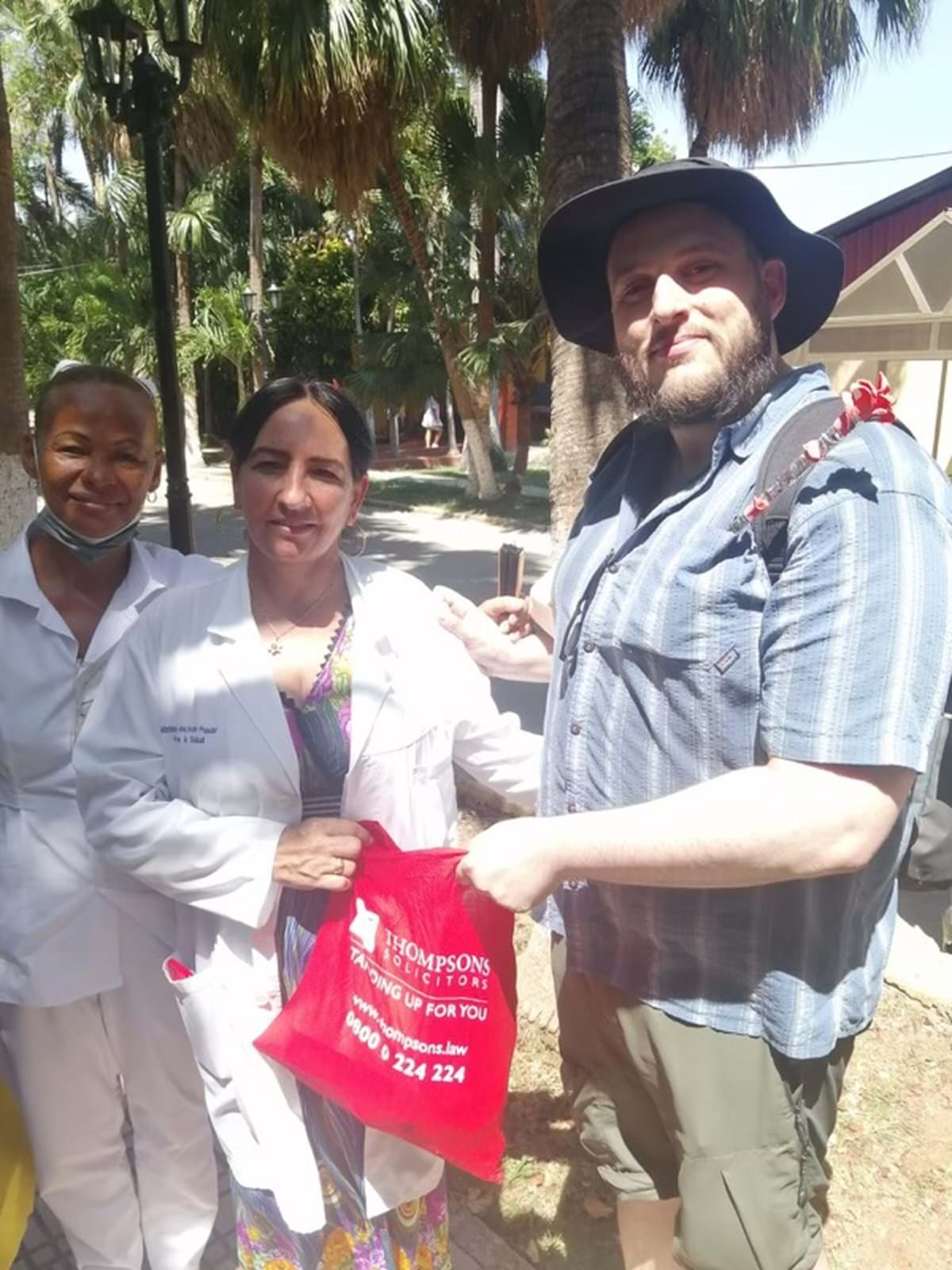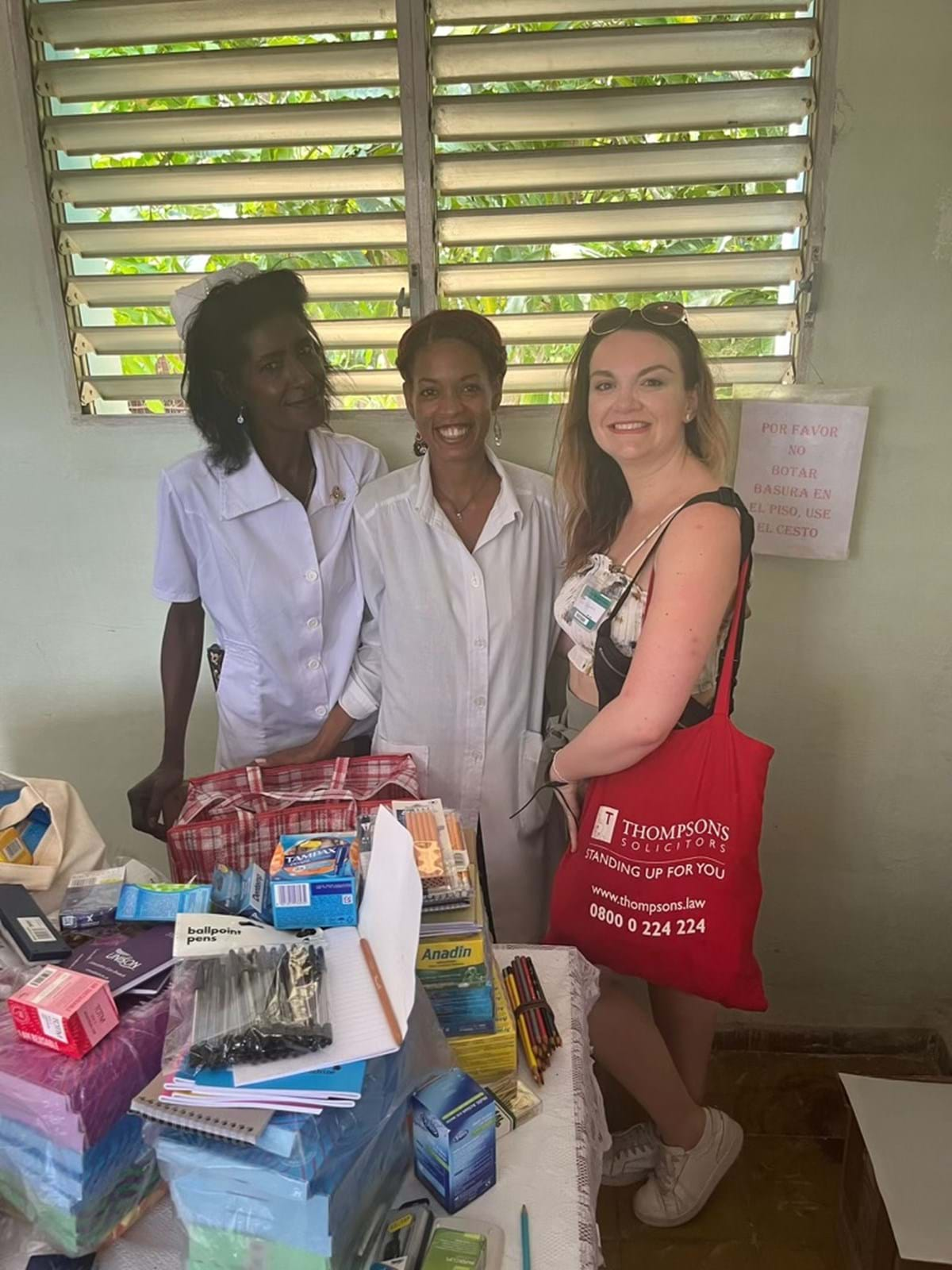The Cuba Solidarity Campaign has members from trades unions, MPs, community, legal, cultural and educational groups
The team at Thompsons was proud to join the 16th Cuba Solidarity Campaign Brigade to Cuba in May, helping raise awareness of the US embargo, calling for an end to the US occupation of Cuban land at Guantanamo Bay, and defending the Cuban people's right to be free from foreign intervention.
Thompsons has long supported Cuba, working with trades unions to deliver much-needed educational and health supplies, particularly ambulances.
We have worked with individual unions and the TUC to develop solidarity with the CTC (the Cuban equivalent of the TUC) and with other Latin American countries that support Cuba.
With the situation in the Caribbean nation remaining volatile, there wasn’t a better time for our team to head out to Cuba and join trades unions and campaigners in solidarity. Below, attendees Frederick Gallucci and Lisa Osborne discuss their experiences.
Frederick’s diary
Attending the 16th Cuba Solidarity Campaign Brigade was one of my life's most interesting, inspiring, exhausting, and humbling experiences. The Cubans are truly generous and welcoming people. While under immense pressure from the American imposed blockade, they showed hospitality, kindness and solidarity to us and the other representatives from across the world who came for the conference and to take part in the events.
But it was clear the Cubans are under siege - the US blockade is economic warfare, and the international community needs to act to end it now.
Everything is exacerbated and made more complicated by the blockade for the Cuban people. There were fuel shortages, and at every petrol station in Havana, there were two police officers or soldiers. We did experience a few blackouts at our hotel and saw queues for petrol and cars lining the roads waiting for hours.
But despite this, spirits remained high. We were in Villa Clara and participated in the Santa Clara march. It was amazing; we saw thousands of people participating, singing, and holding banners and signs expressing their solidarity and love for each other and the Cuban revolution. Bands were playing, and people were clapping in the street and chanting.
We visited a hospital in Villa Clara and heard from doctors about their services. Even under the difficult economic circumstances that the Cuban people face, with limited resources, they prioritise healthcare that puts our government to shame. We visited a ‘barrio’ under special development, seeing the local clinic and the school and delivering material aid to the community. We also visited a community centre for the performing arts (funded and run by the local community) in a building provided by the government.

The children and organisers at the school in the barrio and the community centre performed sang and danced for us. I kept thinking about what they could achieve if they didn’t have to grow up under the blockade and the socio-economic problems it caused.
We explored Havana as a group, and I met some truly unique people on the delegation. Our group was made up of dedicated young trade unionists.
I will stay in touch with the people I met on the brigade for the rest of my life. It was a pleasure to be with them representing our movement in Cuba, showing solidarity and support, and it will be a pleasure working with them to fight for a better future in the UK and argue the case for the Cuban people to be free to make the future theirs. The opportunity Thompsons provided to participate in this brigade and represent the firm is something that will stay with me my whole life.
Lisa’s diary
The sense of community spirit was evident from the moment we landed in Havana – amongst our group of delegates, amongst our hosts from ICAP (the Cuban Institute of Friendship with the Peoples) and amongst the Cuban people.
Our trip started with an inauguration ceremony where a floral wreath was laid for Jose Marti, a Martyr and national hero figure in Cuba for his work in liberating the Cubans from Spanish occupation in the 1800s, before moving onto a lecture by Gladys Hernández, a professor of World Economics, which set out the effects and impact that US policy and the US blockade was having on Cuba.
We visited co-operative farms close to the city of Havana, an example of urban agriculture which is flourishing and is just one example of the Cuban innovation to combat hardship and reduce the reliance on imported food. The hard work, determination and belief in solidarity, equality and friendship shown by the cooperative farmers we met were inspiring. They are strong people (both physically and mentally) determined to support their fellow citizens. It is truly revolutionary because it was an exercise in solidarity and love.

It was amazing seeing people working together, singing, working in the fields, smiling, and doing their part to help others and feed those who are hungry. We were delighted to join in with the farmers planting Maize, harvesting and preparing herbs and preparing the land for cultivation.
At one point in the trip, I lost my phone and travelled to Havana to buy a new one. This was much more of a challenge than I expected – I discovered that there were restrictions on purchasing a phone in that province - and yet another eye-opening example of Cuban people's daily difficulties.
The delegation concluded with the main reason for our travel – the May Day parade. We headed to the centre of Sancti Spiritus, armed with our trade union banners, to join the march. A steel band was playing, and everyone was dancing and singing as they marched in solidarity. A truly memorable experience shared with brigades from across the world!
Despite the numerous challenges on show, the camaraderie and unity in Cuba were almost immeasurable – and it was an honour to join the delegation with so many passionate campaigners from across the world.
